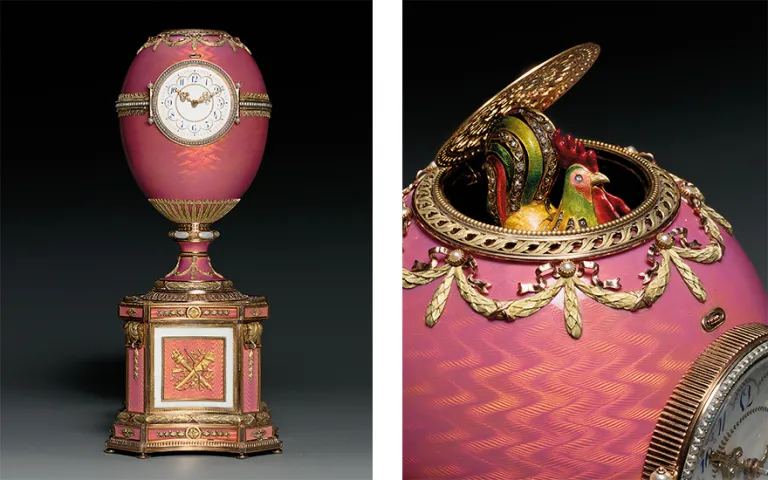
From the start, Fabergé eggs were just planned for Russian eminence. Let us go through this story of this Faberge egg. Tsar Alexander III turned out to be so fascinated with them that he demanded offering one to his better half every Easter until he kicked the bucket in 1894. His child, Tsar Nicholas II, kept the House of Fabergé occupied with creating eggs for the two his mom and spouse. That all reached a sudden conclusion with the Russian Revolution of 1917, the imperial family's execution, and a significant number of the Fabergé eggs moving to the Moscow Kremlin Armory. The praised series of 50 Imperial Easter eggs were made for the Russian Imperial family from 1885 to 1916 when the organization was controlled by Peter Carl Fabergé. These manifestations are inseparably connected to the brilliance and grievous destiny of the last Romanov family. They were a definitive accomplishment of the prestigious Russian adornments house and should likewise be viewed as the last incredible commissions of objets d'art. Ten eggs were delivered from 1885 to 1893, during the rule of Emperor Alexander III; 40 more were made during the standard of his devoted child, Nicholas II, two every year, one for his mom, the widow, the second for his significant other.
After a century, Fabergé egg barters presently move vivacious offering given the pieces' shortage and the tales behind them. Closeout Daily investigates three of the most remarkable models.
Christie’s Fabergé Winter Egg Auction
Sovereign Maria Feodorovna got the primary Fabergé egg soon after Easter in 1885. The tsarina was so intrigued by this egg, presently referred to fans as the First Hen Egg, that it turned into an Easter Sunday staple. Her child, Tsar Nicholas II, proceeded with the practice, giving Feodorovna a few of these pieces, incorporating the Faberge Winter Egg in 1913. Right around 90 years after the fact, Christie's brought this Fabergé egg to the bartering.
3,000 jewels across the outside of the Winter Egg in a snowflake-like example. The tsarina would have opened the piece to find an unexpected bunch of roses created with white quartz and gold wire. The blessing filled in as an intricate token of the evolving seasons, from the chills of winter to spring blossoms.
Christie's offered the Winter Egg with a gauge of USD 4 million to $6 million. Nonetheless, when the offering war finished, it sold for more than $9.5 million to an unknown telephone bidder. "I was anticipating a decent cost yet not a decent cost," conceded Alexis de Tiesenhausen of Christie's Russian Department. The part established another standard for Fabergé eggs at closeout.
The Rothschild Fabergé Egg Auction
Five years subsequent to establishing the standard for a Faberge egg for sale, Christie's gotten back to top it. Prior to the 2007 deal, specialists didn't realize that the Rothschild Fabergé Egg existed. Along these lines, Christie must name the actual piece. Christie's is the lone sales management firm to have the pleasure of naming a Fabergé egg.
The Rothschild Fabergé Egg was introduced to Germaine Alice Halphen to honor her commitment to an individual from the Rothschild family. The unexpected remembered for this pink egg is a chicken with rose-cut precious stones. The bird rises up out of the highest point of the Fabergé egg toward the beginning of consistently.
Following ten minutes of offering, the egg sold for GBP 8.98 million (USD 12.6 million), barely shy of the GBP 9 million high gauges. The outcome was adequately still to break the bartering record for a Fabergé egg. It additionally set another high for watches at sell-off, just as Russian workmanship objects.
Media Source: AuctionDaily